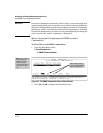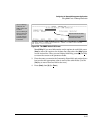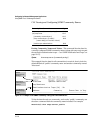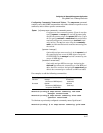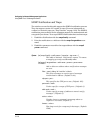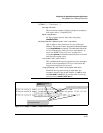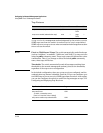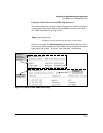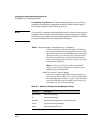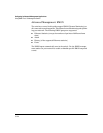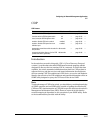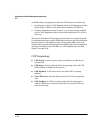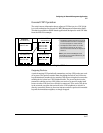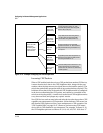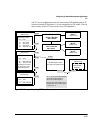
Configuring for Network Management Applications
Using SNMP Tools To Manage the Switch
Configuring Trap Receivers. This command specifies trap receivers by
community membership, management station IP address, and the type of
Event Log messages to send to the trap receiver.
Note If you specify a community name that does not exist—that is, has not yet been
configured on the switch—the switch still accepts the trap receiver assign-
ment. However, no traps will be sent to that trap receiver until the community
to which it belongs has been configured on the switch.
Syntax: snmp-server host < community-string > < ip-address >
Using community name and destination IP address,
this command designates a destination network-man-
agement station for receiving SNMP event log messages
from the switch. If you do not specify the event level,
then the switch does not send event log messages as
traps. You can specify up to 10 trap receivers (network
management stations).
Note: In all cases, the switch sends any threshold
trap(s) to the network management station(s) that
explicitly set the threshold(s).
[<none | all | non-info | critical | debug>]
Options for sending switch Event Log messages to a
trap receiver. Refer to
Table 13-2, “Options for Sending
Event Log Messages as Traps,” on page 13-22. The levels
specified with these options apply only to Event Log
messages, and not to threshold traps.
Table 13-2. Options for Sending Event Log Messages as Traps
Event Level Description
None (default) Send no log messages.
All Send all log messages.
Not INFO Send the log messages that are not information-only.
Critical Send critical-level log messages.
Debug Reserved for HP-internal use.
13-22



